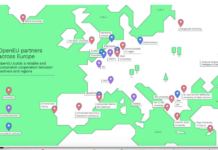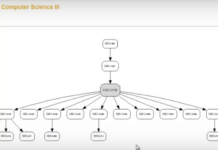
Yes! Weekly (2021) NSF Investing $20 million in effort to transform online education for adults, August 16
The National Science Foundation (NSF) announced on July 29, 2021 that it is investing $20 million in a collaborative effort to leverage artificial intelligence (AI) to transform adult learning in STEM fields. The NSF grant will establish the NSF AI Institute for Adult Learning and Online Education (ALOE) to be headquartered at Georgia Tech. The focus is on developing virtual assistants.
This is just one of 11 new NSF National Artificial Intelligence Research Institutes, building on the first round of seven institutes funded in 2020, with a combined investment of $220 million.
The ALOE project unites experts in computer science, AI, cognitive science, learning science, and education from:
- Arizona State University,
- Boeing,
- Drexel University,
- Georgia Institute of Technology,
- Georgia State University,
- Harvard University,
- IBM,
- IMS Global,
- Technical College System of Georgia,
- UNC Greensboro, and
- Wiley.
The ALOE Institute will develop new AI theories and techniques as well as new models of lifelong learning, and evaluate their effectiveness. The multinational company Accenture joins NSF as a funding partner of ALOE.
Comment
I admit to a certain amount of envy at the scale of the funding available for research in this area. If only our research councils in Canada had the same ambition for research into adult online learning.
I am somewhat dismayed though that the focus will be entirely on the use of AI in STEM subjects. I have two concerns.
There is much about online learning that goes beyond even the most effective uses of AI, such as instructional design, student motivation, collaboration, and assessment of soft skills. Any inroads AI might make into these areas depends on research also into these topics, which surely form the base on which any AI solutions will be built.
Secondly, putting $20 million eggs into one basket associated with AI is highly risky, given the failure in the past of AI to make serious inroads into online learning. My bet is that research into the basics of online learning as suggested above would reap a much larger return on investment, on which effective AI applications could then be built.
This proposal has all the right buzzwords: AI, STEM education, online and lifelong learning. They have some very good people involved in this project such as Christopher Dede at Harvard. I wish them luck with their research, but it should be just one of a number of different threads of research into online learning. Is it time again for a national tele-learning research program in Canada? (Well, there is an election pending!)









 Dr. Tony Bates is the author of eleven books in the field of online learning and distance education. He has provided consulting services specializing in training in the planning and management of online learning and distance education, working with over 40 organizations in 25 countries. Tony is a Research Associate with Contact North | Contact Nord, Ontario’s Distance Education & Training Network.
Dr. Tony Bates is the author of eleven books in the field of online learning and distance education. He has provided consulting services specializing in training in the planning and management of online learning and distance education, working with over 40 organizations in 25 countries. Tony is a Research Associate with Contact North | Contact Nord, Ontario’s Distance Education & Training Network.

